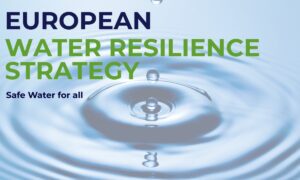The meeting was organised in association with the Committee on Agriculture and Rural Development (AGRI). While it was relevant in the context of upcoming pesticide legislation, the hearing specifically focused on discussing potential breaches of Market Authorisation Legislation with regards to pesticides.
Stockholm university researchers Axel Mie and Christina Rudén presented their findings and engaged in dialogue with representatives of pesticide producers Bayer, Syngenta and Croplife Europe as well as EU Agencies EFSA and ECHA. Mie and Rudén’s findings highlighted issues with with companies disclosing studies related to neurotoxicity following concerns raised in june. They stated that a number of studies submitted in the U.S. was not done so in the EU. According to their fingings, the lack of, or significant delay in disclosure, as well as testing and reporting bias systemically threatens the EU agencies’ assessment’s reliability. In their recommendations, they called for stricter penalities, better cooperation with agencies outside of the EU, as well as the foundation of a retrospective system to include previously undisclosed data in risk assessment.
In response to the concerns raised, company representatives highlighted their commitments to human and environmental health, and to abiding to all relevant regulations and pointed out the importance of pesticides in agriculture. In addition, Syngenta representative Alexandra Brand criticised the lack of harmonisation in regulatory systems, and emphasized that all their studies are freely accessible on a dedicated portal, citing that regulation states that only relevant data are to be submitted.
On behalf of EU Agencies, European Chemicals Agency (ECHA) director Sharon McGuiness describes ECHA’s conduct – the role of rapporteur member states, their handling of data gaps, and the importance of public consultations in their assessment processes. Bernard Url, director of European Food Safety Agency (EFSA) similarly described the agency’s due process, explaining that they rely on available data. In addition, he pointed out room for improvement in transatlantic data sharing, explaining that a systematic, automated system would be welcomed. The discussion concluded with a Q&A session with MEPs, where issues, such as cooperation between academic and regulatory sciences were raised.
July 18 was an exciting day for the ENVI committee, as, on the same day, the assessment of the controversial herbicide, glyphosate was also discussed.



